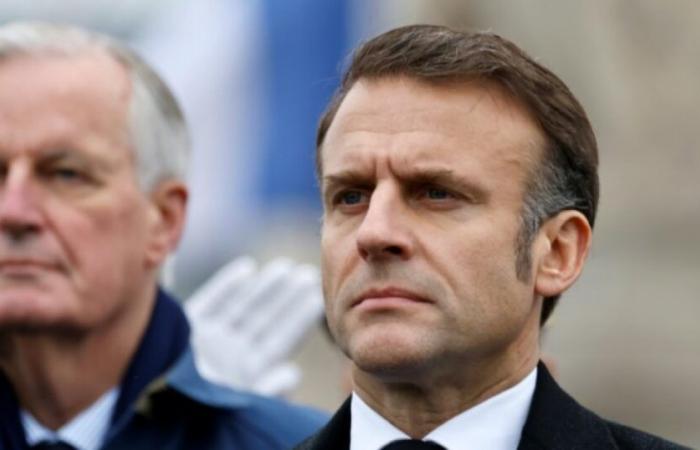In the background, Emmanuel Macron? “He has never given up being at the center of the game. You will see,” predicted a confidant in early November. Now the crisis is precipitating the president's return to the front line to prepare for the post-Barnier era.
And also exposes him, whom many consider responsible for this impasse.
Barring any drama, Michel Barnier's government should be overthrown this week by MPs. The country is therefore plunging back into the most serious political crisis of the Fifth Republic, caused by the dissolution of the National Assembly and which the appointment of this right-wing Prime Minister, just three months ago, will only have put in place. parentheses.
Until the end, the Elysée stuck to the same line: “the President of the Republic wants stability”, his entourage insisted again on Monday morning. Before refusing to comment when censorship proved inevitable.
But recently, the head of state had included this option. He therefore began to discreetly “think” about what to do next, admits a close friend.
The latter thinks that he will have to “move quickly enough to appoint someone” to Matignon, and not procrastinate excessively as he did after the legislative elections this summer.
In his camp, if the ties have weakened, some still hope that he finds the martingale. “The Fifth Republic does not work without the President of the Republic. After a few laps around the Earth, Macron must return to the atmosphere and give direction,” argues a deputy from his party, Renaissance.
– “Democratic legitimacy” –
Emmanuel Macron, however, does not have many assets in hand. Rename Michel Barnier? Another personality at the head of the same fragile team between the center and the right? Or turn to the former socialist Prime Minister Bernard Cazeneuve, whom he hesitated to appoint in September?
Whatever the path chosen, the equation remains the same in the Assembly: no configuration seems to promise a majority to pass a budget for 2025, while the markets are showing themselves to be more and more feverish.
His posture will also be closely scrutinized.
Virtually silent on domestic politics in recent months, he has regained his role as arbiter and will have to speak out. But “he cannot appear as the one who dances on Barnier's grave”, warns a former Macronist minister.
“The challenge for him will be to remain on top while public opinion holds him responsible for the situation, due to the two determining elements which are the dissolution and the degraded public deficit of France”, explains pollster Bernard Sananès, from the Elabe Institute. According to him, “he receives the sum of everything that is criticized against him, including by part of his electorate”.
If the Elysée strategists hoped that the presidential reserve would give him color in public opinion, this is not the case: his popularity is at its lowest since his arrival in power in 2017, or since the yellow vest crisis. next year, according to the barometers.
Michel Barnier's failure is also considered by several of his opponents as his, since it was he who brought the former European commissioner out of retirement. At the time, he preferred the 73-year-old Gaullist to a left-wing personality, ensuring that he responded more to a criterion of “non-censorability” which rings a little hollow today.
On the left, but also on the far right and sometimes in the center, a few voices are being raised to affirm that a resignation by Emmanuel Macron is the only solution to resolve the crisis. Among its supporters also, some fear that these calls will increase if the probable censorship of this government is added, in close succession, the fall of the next one.
“It’s becoming very complicated,” says political scientist Bruno Cauvrai. “From the point of view of democratic legitimacy, he no longer has the slightest room for maneuver to make a mistake again: if he appoints a Prime Minister who is also censored, or if he dissolves next summer and loses the elections again, I don't see how he can keep up.”






